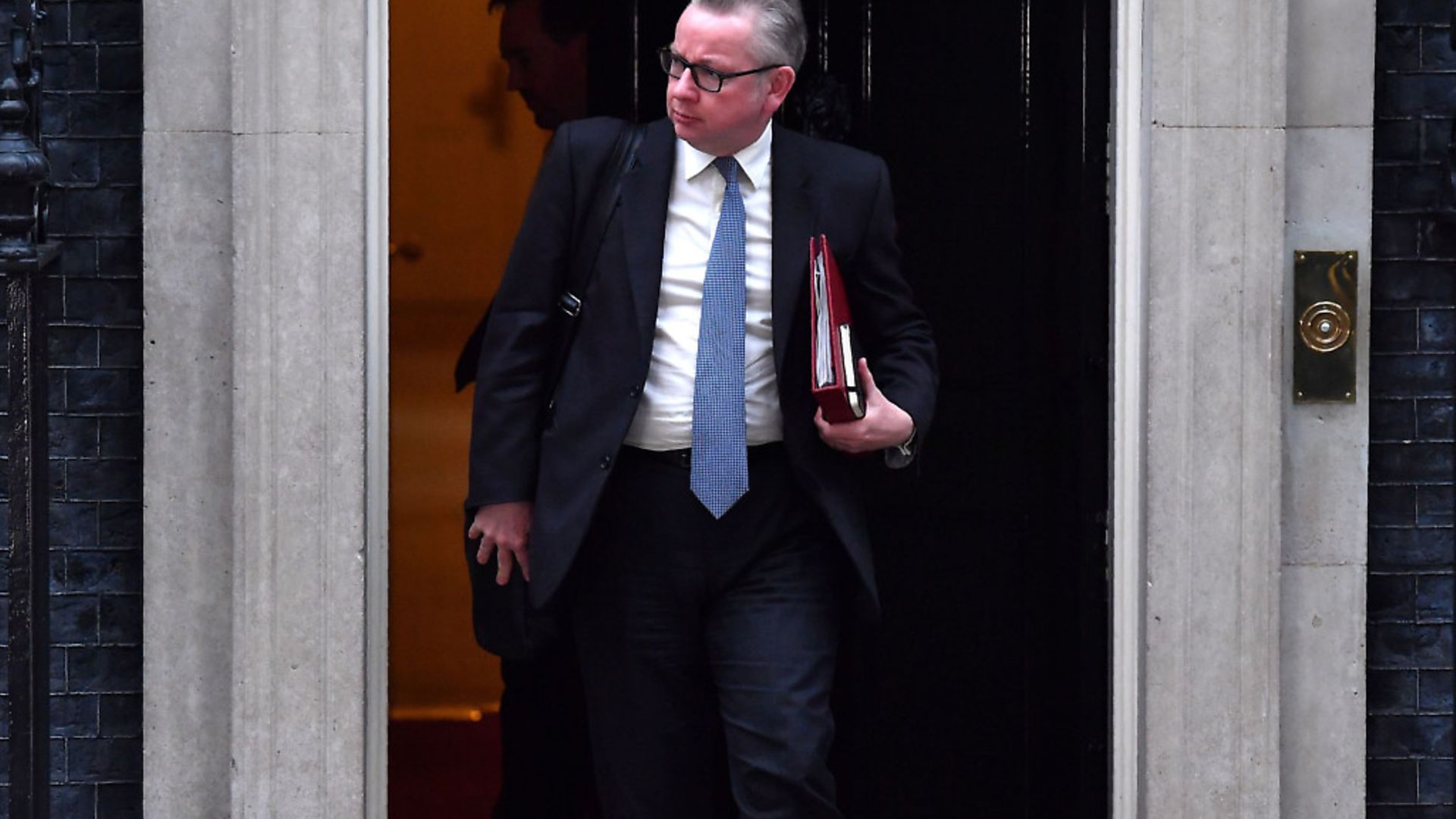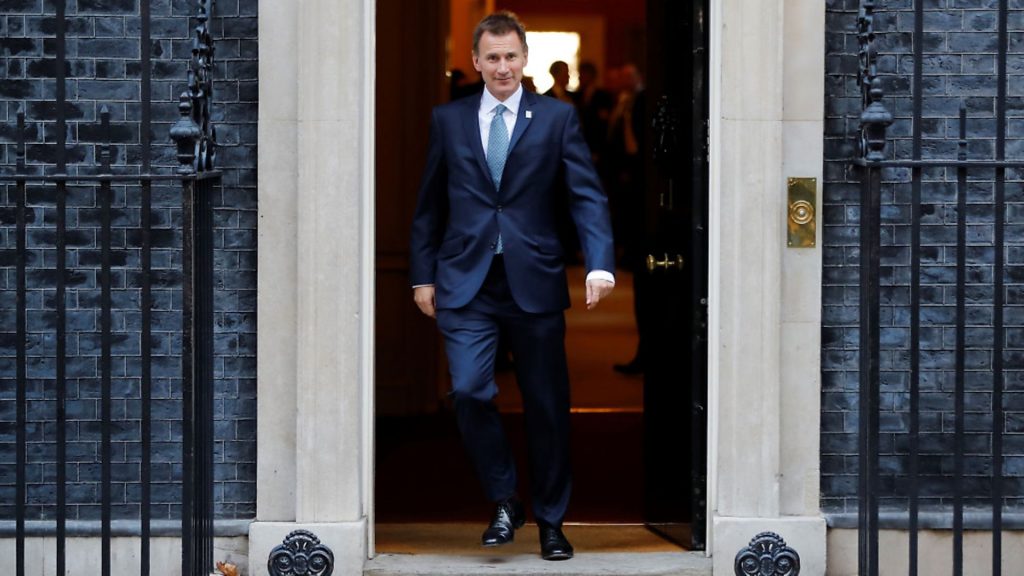
Even at this late stage, Brexiteers are projecting their own dreams onto their failing enterprise, in the knowledge they will escape the blame. John Kampfner reports.

Paradise comes in many shapes and sizes for Brexiteers. Their wet dream starts with tearing down the EU flag. It ends with… well, whatever, they want it to be.
All the key players in the nightmare on Downing Street are projecting their wildest fantasies onto their failing enterprise. They haven’t the faintest idea how to achieve them. They are not bothered that their plans may be unachievable and contradictory. Granted free air time by the BBC and other credulous journalists, they let their imaginations rip.
What to make of their reveries? First a reprise, in no particular order.
Jeremy Hunt: here was a Tory leadership contender who planned to interrupt his Christmas holiday in order to fly the flag, the Union flag. No sooner had he arrived in Singapore, he was on the Today programme airwaves briefing out the speech he was about to make extolling the virtues of the city state.
The foreign secretary lavished praised on Lee Kuan Yew, the great founder, rolling out the stats on the country’s remarkable economic growth. And remarkable it really is. When the Brits gathered up their pristine white colonial suits in the 1960s, Singapore had the GDP of Ghana. Now it is one of the richest countries in the world, in terms of per capita wealth. People flock there to make money and to live a good life.
I was born in Singapore and return there fairly frequently. I spent some time a few years ago at the LKY school of political science of the National University, researching a book called Freedom For Sale.
This looked at the Singapore model and how successful it was as an export around the world. The idea is that people voluntarily give up their public freedoms (freedom of expression and genuine democracy) in return for liberty and security.
The Chinese were studying the model hard. The UAE practises it. Other countries in the developing world are doing the same. These thorny issues were not on Hunt’s agenda. Instead, he rambled aimlessly about Singapore as a low tax and low regulation beacon, suggesting that the UK could take inspiration from it. The entrepreneurial haven.
For the Brexit ministerial warblers, examples tend to come with a long-haul flight attached. Liam Fox, in his mercantile wonderings, likes to play down the fact that nearly half of Britain’s exports go to the EU. ‘Clearly, the vote to leave the European Union has not had the catastrophic effect on our economy that was predicted,’ Fox opined in a speech in November.
‘Quite the reverse. Now is the time to raise our sights, and acknowledge that there is a world beyond Europe, and a time beyond Brexit.’
Fox selects his facts carefully. Britain flogs more to Ireland than we do to the four BRIC countries (Brazil, Russia, India and China) combined. Yet you won’t hear that from the lips of the international trade secretary. Instead one day he is lavishing praise on Chile, the next on Thailand. Even Saudi Arabia, until they killed Jamal Khashoggi and chopped him up. Fox is in a state of delirium whenever he delivers a speech to a right-wing think tank in Washington. There he goes into traditional Whitehall default, praising the ‘special relationship’ and America’s business culture. But what to do about injected chickens and other manifestations of low regulation?
Michael Gove has morphed from a radical free trader into more of an interventionist. His role in charge of the environment may have prompted this, but more likely it is political calculation. He is now calling for a more regulated Brexit, even perhaps a Norway model, envisaging an economy that is less bare-knuckle, free-market. That more communautaire approach was once espoused by Theresa May’s ideologist-in-chief, Nick Timothy, although he would have recoiled at the Francophone term.
Now Timothy spends his time denouncing his erstwhile boss’s Brexit deal, vying for space and rhetorical flourish with Boris Johnson on the pages of the Telegraph. There can, however, be room for only one Castlereagh or Churchill.
Having presided for a couple of years – enough to earn him the soubriquet of the worst foreign secretary of modern times – each week Johnson writes of a proud island freed from the shackles of the perfidious continent. Britain, he promises, will once again rule the waves.
Another who spent the festive season on manoeuvres is ‘the Saj’ Javid. His travel plans, were, unlike Hunt’s, not planned, involving a rushed return to the helm from his family safari in Africa. The cause was a couple of hundred Iranians and Syrians landing on our shores via rubber dinghies, otherwise known as a ‘major incident’.
These two senior ministers have much in common. Both were Remainers during the 2016 referendum and have acquired the fervour of the recent convert.
Do these disparate Brexit philosophers have anything in common? They share two attributes – an obsessive focus on immigration and an inchoate fantasy about ‘Global Britain’.
This term, first given a run-out by May and Johnson in late 2016, has become the organising slogan of UK foreign policy in the age of Brexit.
It means everything and nothing, as the House of Commons foreign affairs select committee pointed out in a report last March. The findings make for excruciating reading. ‘No minister during our inquiry was able to give the committee a definitive explanation of ‘Global Britain’,’ it points out, unhelpfully.
It quotes testimony from Sir Simon Fraser, former permanent secretary at the Foreign and Commonwealth Office, who declares the re-labelled foreign policy consists of ‘a lot of rather mushy thinking’ and ‘a lot of rather simplistic words’.
As for practical evidence of this new swashbuckling Britain packing a punch, the report notes that the UK failed to secure the election of a British judge to the International Court of Justice for the first time since 1946. All this from a committee led by a Conservative and former army officer, the estimable Tom Tugendhat.
One might, if one was being generous (and I’m not), concede that the logistical chaos, the stacked lorries at Dover and the other assorted economic damage might be worth it in the short term, if there was a road map to a long term new foreign policy for Britain.
Whether it is the tax regime, strategic alliances or migration policy, the Brexiteers have no fixed position, or anything approximating to one. They will work it out as they go along, they suggest, which is not entirely reassuring.
I have even heard it said by one Brexit advocate that the EU is a racist construct, favouring white people. Once out of the bloc, we can be more generous to people of other ethnicities.
I’m not quite sure that is what the burghers of Sunderland, Boston or Ramsgate had in mind, or what the Sun leader writers might advocate.
Last, but not least, come the Lexiteers – Jeremy Corbyn and his merry gang. For the Labour leader, who continues to defy his own party with blithe indifference, the EU is a cabal of free market zealots.
Everyone to his own interpretation, I suppose. It’s not quite what Margaret Thatcher thought of Jacques Delors. In the view of JC, a Britain outside the EU will be free to invest, subsidise and nationalise to its heart’s content.
Someone seems to have forgotten to tell him that there won’t be any money left to play with. Britain will spend the next decade or more having to retrench, to pay for the pleasures of the Brexit protagonists.
By then, presumably, all these various dreamers will have parted the scene, and will be able to blame the government of the day that this wasn’t the true, British, red meat, Brexit that they all had so meticulously planned.








